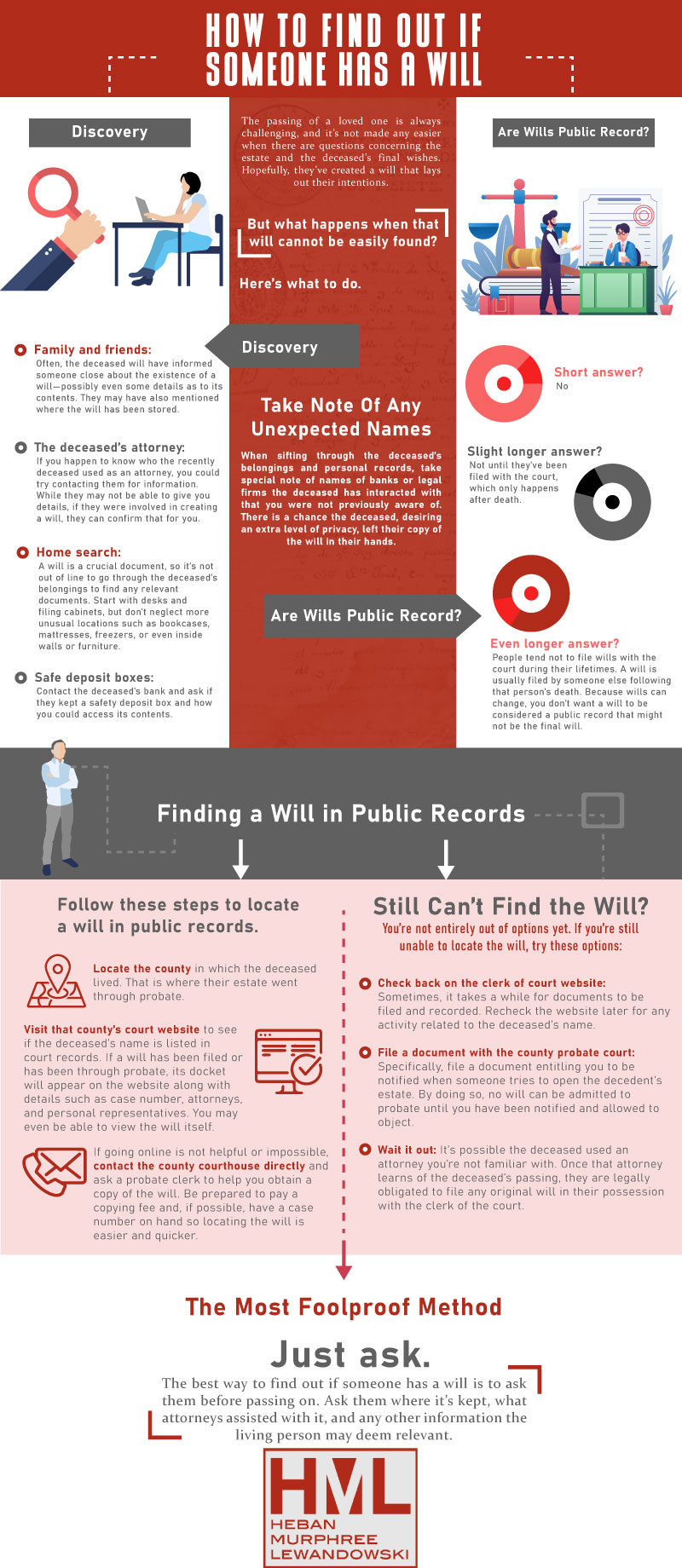- EXPERIENCED LAW FIRM IN TOLEDO, OH
- (419) 662-3100
How To Find Out if Someone Has a Will

What Are The Valid Reasons To Contest A Will?
June 15, 2021
Can A Child Contest A Will If Excluded?
June 18, 2021Need To Find A Will? Follow These Steps!
Deaths are difficult for everyone, particularly for the family and loved ones left. Having a will prepared helps alleviate stress, confusion, and infighting over distributing the decedent’s estate. Here are five ways to find out if someone has a will:
Ask the Deceased’s Family and Friends
People usually tell their close family and friends whether they prepared a will or not. They may also know where the will is safely kept.
Moreover, close family and friends are often appointed as the will executors. Executors oversee the administration of the will and distribution of the estate assets.
Contact to the Deceased’s Attorney
Apart from the appointed executors, the deceased’s lawyer should know about the existence of a will. However, attorneys may not divulge the specifics of the will or give a copy of the document even when requested.
It all depends on their confidentiality agreement with the deceased. Still, they should at least be able to confirm if a will was prepared.
Search the Deceased’s Home
Loved ones and family members may come across the decedent’s will after a thorough search of their possessions. A full search of the house may be necessary.
Documents are commonly kept in filing cabinets, desks, and bookcases, although unusual places, like freezers and mattresses, are sometimes used as hiding places.
Reach Out to the Deceased’s Bank
The deceased may keep their will at a safe deposit box in their bank. Try to contact the bank and ask whether the deceased kept a safe deposit box or not.
Strict bank regulations may prevent unauthorized access to the deposit box to check for a will. A lawyer may help you petition the court and gain access to the contents.
Take a Look at Public Records
Wills are not public records — at least, not until they are filed in court after the death. Wills filed in court are often considered final. Therefore, modifying a will already be filed in court can be more challenging.
Many people avoid filing their wills to allow for more freedom should they decide to change the contents.
Looking at public records is often done as a last resort. However, here are some steps to help find out if someone has a will using public records.
- Figure out the deceased’s home county: This is most likely where they filed their will.
- Check the county court website: A filed will should have a docket, case number, and other details.
- Call or visit the county courthouse: Knowing the case number makes it easier to find the will.
Do take note that filing and recording wills with the county court may take time. Make sure to check back with the court or their website for any updates.
If there is no will filed publicly yet, a document requesting notification should anyone attempt to access the deceased’s estate may be filed? Such filings also prevent the probate court from admitting any will without your express permission.
Conclusion
The best and most foolproof way to find out if someone has a will is to ask. Enquire not just about the existence of their will but also about where it is kept, the lawyers who helped write it, and other relevant details.
Broach the subject early on, particularly if they have a terminal illness or are getting on in years. Doing so may help offer peace of mind for themselves and the family they may leave behind. If you need professional assistance, contact our probate law firm!







